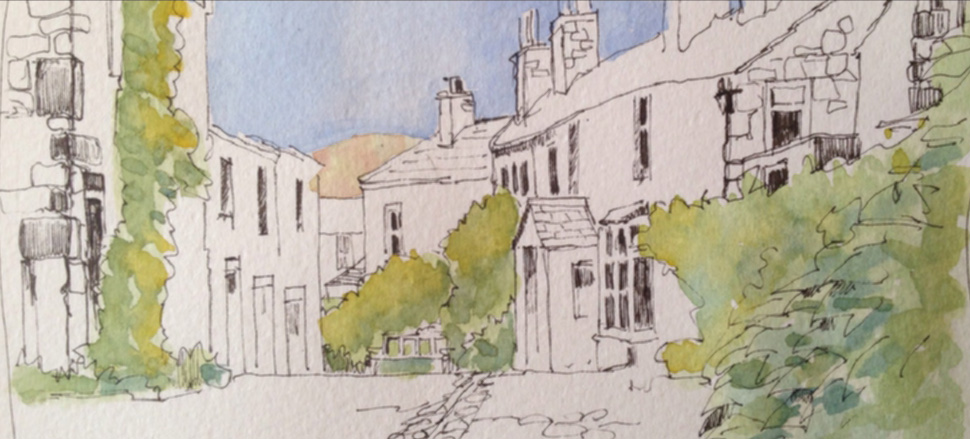 The origins and development of the world's adopted language.
The origins and development of the world's adopted language. |
Click to view a map of the British Isles after Anglo-Saxon Settlement
Nobody in Britain spoke English before the Anglo Saxons settled here following the collapse of the Roman Empire. The native population at that time spoke a variety of Celtic languages and some, especially in the Roman towns, would have had a good working knowledge of Latin. Welsh, Gaelic, Cornish, and Manx originated in this early period, and have no direct relationship with English.
When the Anglo Saxons came across the North Sea from Germany and parts of Denmark, they naturally brought their language with them. This Anglo Saxon language, now usually referred to as Old English, was the direct ancestor of modern English, Today; English, German, Dutch and the Scandinavian languages (except Finnish) are all still closely related and belong to the Germanic group. The grammar and spelling is very different, but much of the vocabulary is shared eg: house/ham/hus etc.
At first the Anglo Saxons created a number of small, separate kingdoms. There were seven of these, forming a loose unit now known as the Heptarchy. Gradually, over several centuries, they united to form “Angleland” or England. No doubt the language varied from region to region, because the different Anglo Saxon tribes certainly had their own dialects. West Saxon, for example, was rather different from Northumbrian. There will have been a Celtic influence too, especially in those areas where the local population did not entirely disappear.
The Viking raids began at about the same time that the Anglo Saxon kingdoms were evolving into England The Vikings – being Scandinavian – spoke a language (Old Norse) which, in origin at least, was just as Germanic as Old English. By now, however, there were marked differences between the speech of the Anglo Saxons and their more northerly cousins. Much of England (especially the North, parts of the Midlands and most of East Anglia) was heavily settled by Vikings, and their influence is still apparent in local dialects and place names.
The Normans, who arrived in 1066, were Vikings who had previously settled in France. By the time they came to England, they were speaking a mixture of Old Norse and French. The French element of their speech included traces of both Celtic and Latin which had survived from the days when Gaul was a Roman province.
Thus the Norman Conquest both reinforced the Germanic nature of English, whilst at the same time reintroducing strong elements of Latin, a language spoken here long before the English came. Modern English, therefore, is a fascinating mix of all these and other (more recent) influences.
Do you fancy a Bilberry Pie? It’s the latest publication from the ... Read more
Attention all members who pay their annual subscription by bank transf... Read more
The Paypal facility has now been removed and those wishing to purchase... Read more
If you are looking for a particular article from any of the Sum... Read more
If any members would like a more active role in the running and shapin... Read more